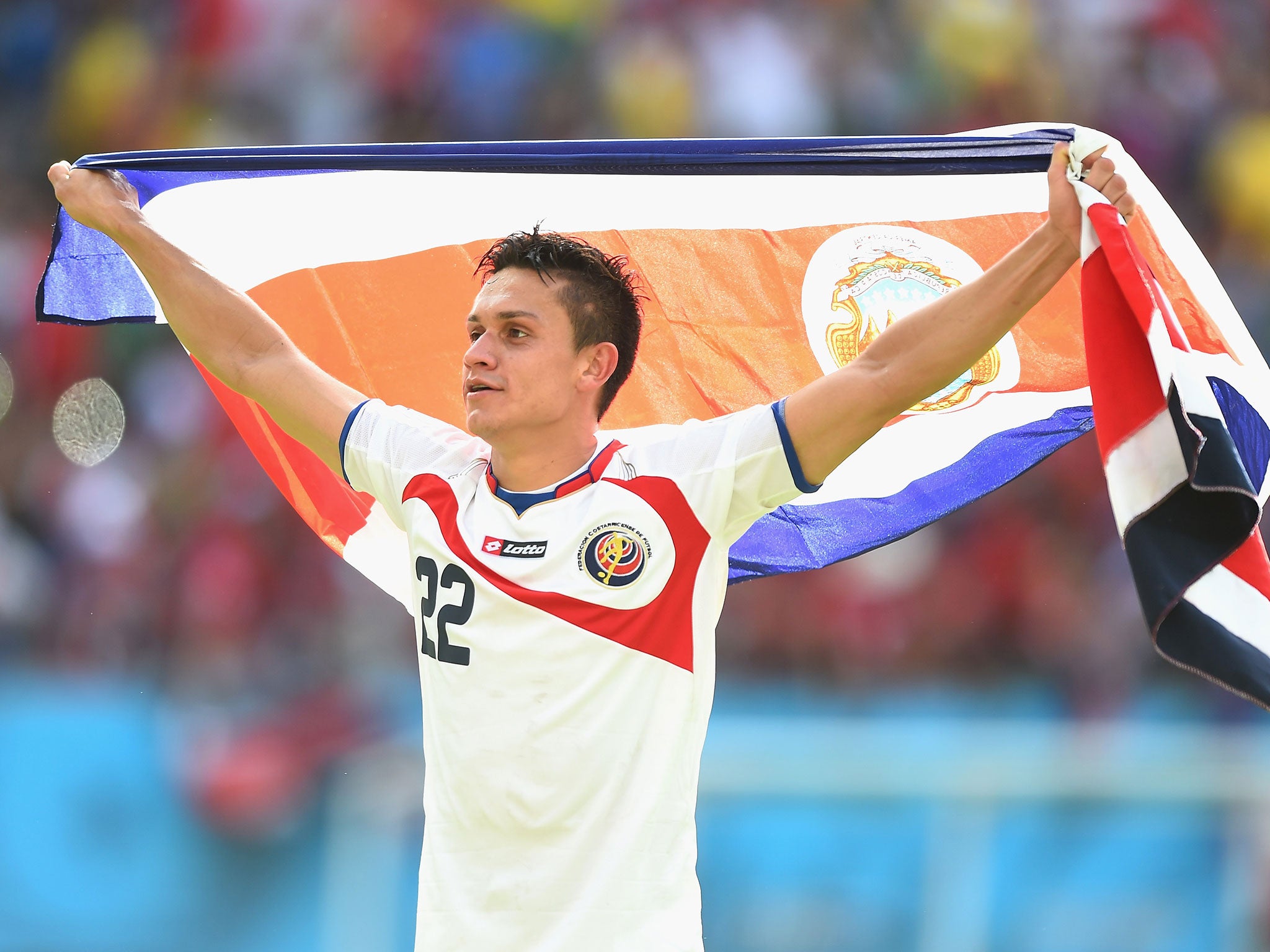It was foretold that England’s was a group of death but nobody imagined the identity of the killer. When the draw was made, a bluffers’ guide went something like this: England would face Italy and Mario Balotelli, Uruguay and Luis Suarez, and Costa Rica. For all the attention paid to the last on that list it might as well have been Costa Coffee.
If all went well, the final match in Belo Horizonte would be a dead one, with only the positions of the first and second-placed teams in Group D to decide.
It is indeed a dead rubber but not in the way Roy Hodgson could possibly have imagined. Tuesday’s game will decide whether Costa Rica, who beat first Uruguay and then Italy comfortably, will finish first or second. The only choice left for Hodgson’s players is what to order for an inflight meal on the plane back from Rio de Janeiro.
“It is a big surprise for the world,” said Paulo Wanchope (right), who once led Manchester City’s attack before the oil money arrived, and is now Costa Rica’s assistant manager. “I understand the reality is that nobody expected usto go through and I know for sure that some of these players will want to impress against England and end up in the Premier League.
Italy 0 Costa Rica 1: Player ratings
Show all 22“Sometimes, when you are a player, you don’t realise what you have done. I don’t think it will have sunk in yet. The people back in Costa Rica will be going crazy. There is nobody at work so everybody will be going mad.”
When Costa Rica last appeared at a World Cup, Wanchope gave them a fleeting taste of glory, scoring an equaliser against the hosts, Germany, in a match Jürgen Klinsmann’s reborn side won 4-2.
They did not escape their group, something they had only done once before. That was in 1990 when, as now, Costa Rica were thrown into a group where they were expected to be chewed up by Brazil, Scotland and Sweden. They beat the last two and lost to Brazil by a single goal.
Their hero was their keeper, Luis Conejo, who was injured just before they faced Czechoslovakia in the knockout stages. Despite Conejo’s prayers, he was not fit and Costa Rica were shot to bits in Bologna.
Once again their success was built on their goalkeeper. For all the attention focused on Joel Campbell and Bryan Ruiz, whose goals in Fortaleza and Recife were beautifully taken, it was Keylor Navas who was the key.
Certainly, if you had to pick a moment when the script changed for Costa Rica, it was just before half-time in the Castelao when a speculative shot from Diego Forlan struck Oscar Duarte’s boot and seemed to be looping into the Costa Rican net before Navas, back-peddling, tipped it over. Had that gone in, Uruguay’s lead would have been two goals. Curiously, both Conejo and Navas played for minor teams in La Liga, one for Albacete, the other for Levante, but Navas may yet reach the Premier League.
“The thing about this group is that we have 15 or 16 of them playing in Europe,” Wanchope said. “Christian Bolanos has played in the Champions’ League [with Copenhagen], Joel Campbell has done so for Olympiakos and Navas is the best keeper in Spain.”
This has also been something of a triumph for Costa Rica’s manager, Jorge Pinto. He was a strange choice since he had managed the country unsuccessfully before and is a Colombian who had failed to take his country to the previous World Cup in South Africa.
“I changed many things,” he reflected. “We certainly changed our tactics. We press harder, we block people off and counter-attack when we can. It is true that we do try to score from corners and free-kicks. Our training is very hard and we always work with a ball – and that has had a positive impact for us.”
Costa Rica, the team and its people, are known as Los Ticos, which is a diminutive. Their language is full of “little”. They will offer you a “little drink” or throw a “little party”. But today, Costa Rica stand tall.
Subscribe to Independent Premium to bookmark this article
Want to bookmark your favourite articles and stories to read or reference later? Start your Independent Premium subscription today.


Join our commenting forum
Join thought-provoking conversations, follow other Independent readers and see their replies